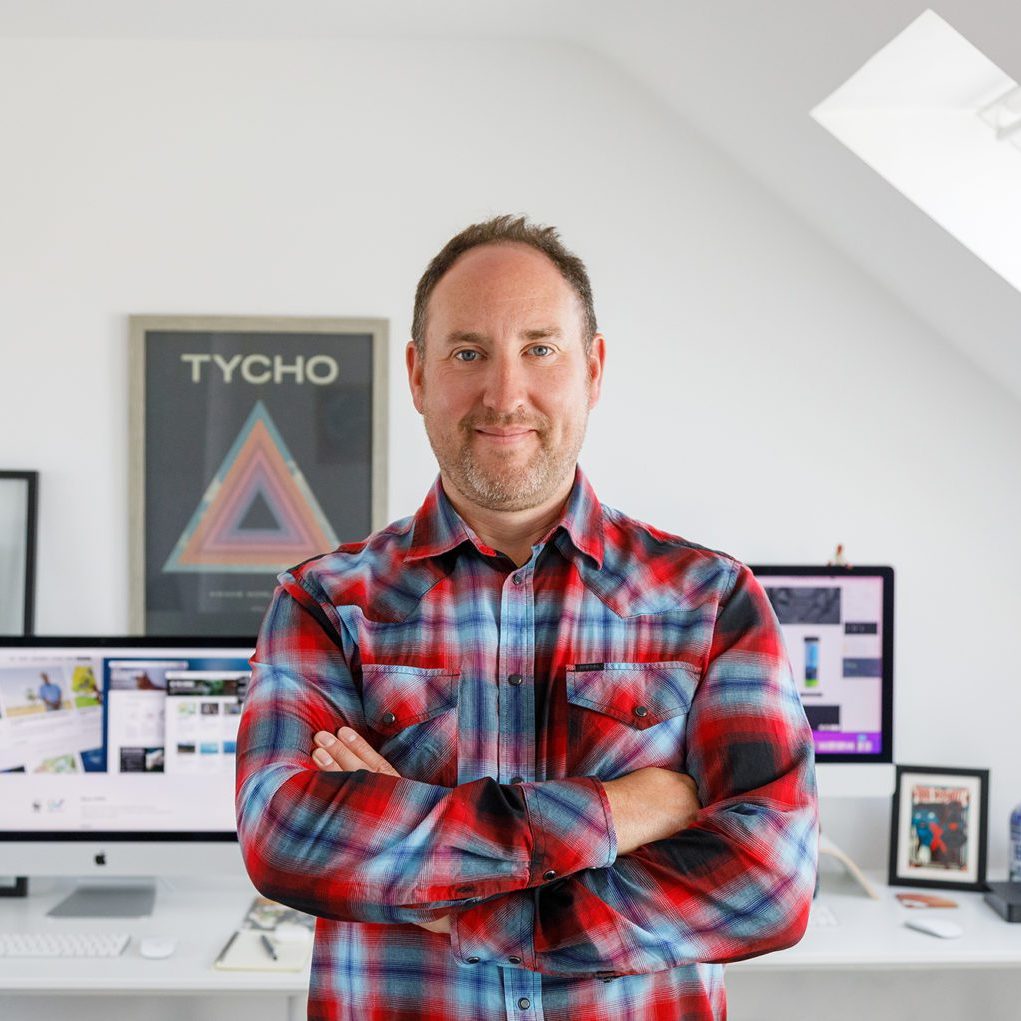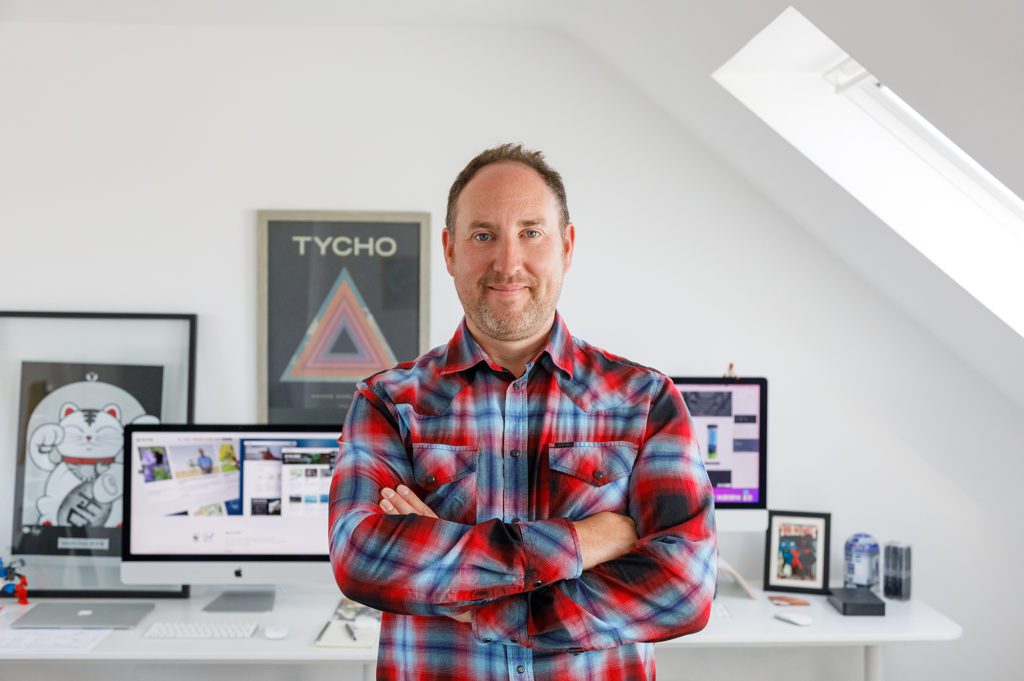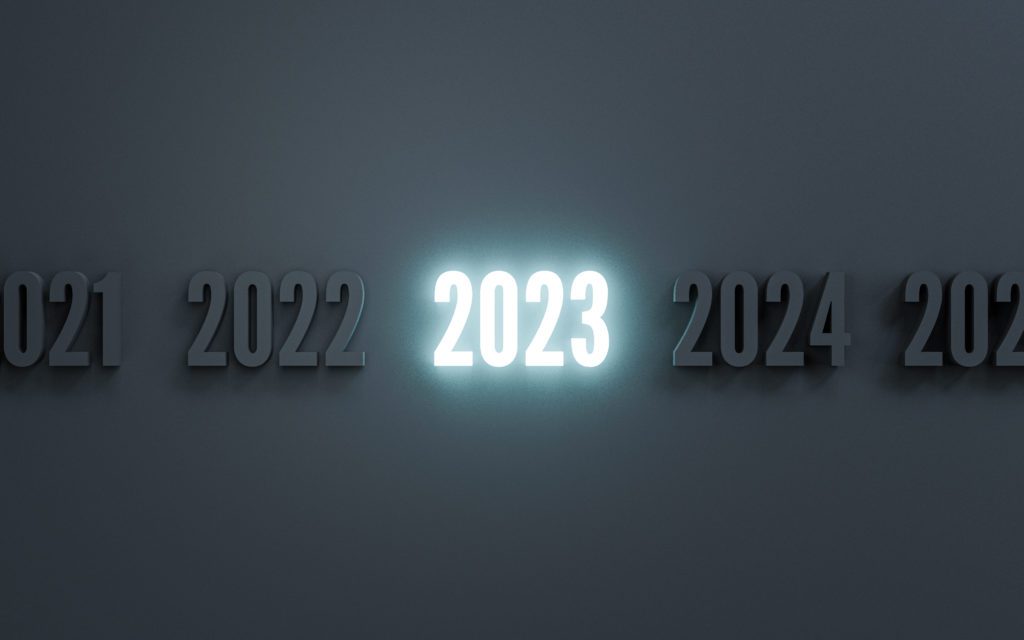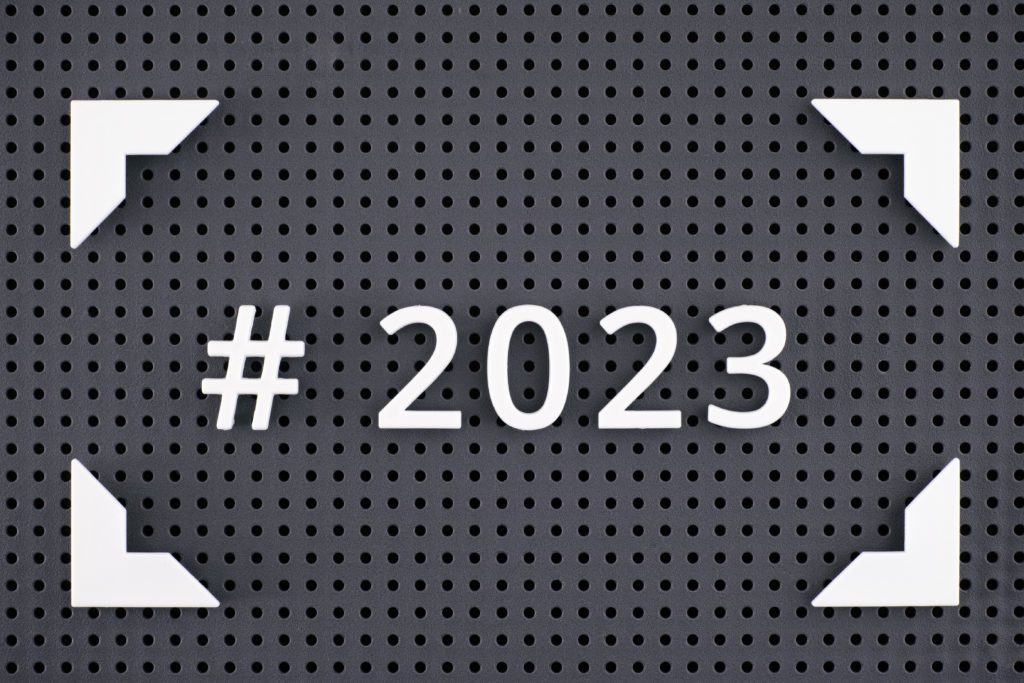
Ten years of Modular
Q&A with agency founder, Adam Millington

The birth of Modular came ten years ago, after its founder Adam Millington had spent over 10 years working with some of the biggest brands. Not to pat him on the back too much, but working on projects with Coca Cola, RIBA, Aardman and Sky to huge charities like Breast Cancer Research, put him in pretty good stead to go it alone.
But let’s rewind a bit. As we sat down to have a Q&A with Adam, we wanted to start at the concept of the name and how that shaped the company.
“Modular came about because when thinking about the name of the company, we wanted it to be something that was indicative of the craft and what you’re doing. At Modular we offer a number of services that operate as stand alone items, or can be combined and utilised to create something bigger. We’re modular in what we offer – strategy, human centred design, development, content creation”.
What was your initial hope or goal for starting an agency? Was it the type of projects you’d be working on, or the people you’d work with?
“When I started the agency I wanted to have some control over the flow of an agency and everything we created… what it would be like to work for my agency. So it was a bit inward looking initially. Wanting to work with passionate people to feel like they were all doing the same thing, rather than working for the man.
I don’t think I necessarily had any particular sector in mind either… When you first start working, you welcome all the projects that come your way as you are excited and want to help everyone. But given the work I’d been doing prior to that, which were a lot of the charities and non-profit, it was quite logical that those would be the sorts of clients that I would end up working for.
I always enjoyed working with people that were really passionate about doing something. With charities for example, people are just really dedicated to what they are doing – if they were interested in it, I was in.
Job satisfaction was very, very important, to deliver something worthwhile in some way; having a client say ‘this works really well for us’.”
Is there a memorable moment while you were at the start of your career or creating Modular that you think back to now which could’ve been insignificant at the time?
“I liked understanding that I was delivering on behalf of other people and it was much more important that they liked the end product. Sometimes, we can confuse design with art. That’s not to say it’s not creative, but art is something that is within yourself, something you want to communicate and you need to be happy with. Graphic design is something you’re delivering on behalf of somebody else. So you’re almost creating art for them. That was a bit of a turning point of understanding – the difference in being creative and creating for someone else.”
Are there other lessons you’ve learnt along the way that have stayed with you?
“If there was one thing I took for granted back when I was in college was the amount of theoretical work that you have to do. So I would say, “what’s this got to do with design?”.
You spend a lot of time writing and reading things, forming opinions. But now, being in a more strategic role, you have to have those skills, communicate creative concepts through writing. You have to be able to articulate your reasoning as to why you have done something. Often if you’ve thought about something a lot, you have a lot of reasons for doing it and you should be able to articulate that in writing.
But I think I really took that for granted and underestimated it in college.”
When Modular was still in its early days, were there times where you felt things were getting hard or wondered what the hell you were doing?
“Yes, a lot of times! If you’re running a business, you will have ups and downs. Things can be great and they can be tough.
I set up a business doing a thing that I could already do. I was turning the design work that I loved into a business. It was a huge change. The mindset and skills required to run a business are completely different to that of a designer. I learnt a lot. Grew a lot.
Over time, I developed a clear vision for Modular – who we are, what we do and what is important to us when looking at new clients and projects. One thing I am absolutely clear on is our values have to be aligned with our clients. Things are much harder when those key things are different.
If you have a strong vision, you can accept the hard times which in turn means you can keep that vision going. It’s like Star Wars … Stay on target – stay on target, don’t get caught out by the shiny thing over there.”
It must have been hard along the way to not let yourself get a little caught in comparing yourself with other agencies though?
“Almost entirely at the beginning I was looking around thinking ‘I want to be like that’, ‘I want to be like them.’ There was a design collective called the Designers Republic around the late 90’s, they had a lot of rave culture and club culture, all their flyer designs were around those times. The Designers Republic coalesced that into a unified style that was plastered everywhere and it was so cool. I absolutely loved it at the time and that’s what I wanted to be like.
There was another company called Me Company that were doing really great album covers and they did this really cool advertising with 3D dogs and cats with big spiky collars – I loved that. That was all that kind of stuff, post-college, that I definitely wanted to be doing.
Now I don’t worry about it so much. I am focussing on Modular and where we want to go as an agency. I see other agencies and companies that I admire who have nurtured really great company cultures. As we grow I’d like to see the same culture develop for us.”
The success of many agencies or companies depends on their ability to stand out or make bold decisions. Are there any risks you took along the way which really paid off?
“There’s definitely lots of risks that didn’t pay off! But I would definitely say it was a risk choosing to work with my wife. People say, ‘how do you work with your wife, I couldn’t work with my partner’, but I would say that it’s definitely paid off because you have a business partner there. I heard someone say a while ago, from an entrepreneurial perspective, why would you have a business partner? Because that’s just somebody you’re going to have to show the profits with, but I don’t really see it like that. Especially when I started out with a business partner, it’s somebody to share the ups and the downs with.
It’s good to be able to celebrate with somebody who understands what you went through and then lean on somebody when things are tough. It can make total sense to work with your partner because you’re going to be a lot more accommodating of each other. You’re both always on the same side. That doesn’t mean you don’t disagree or argue about certain aspects, but you have a common goal. So I think that was a risk. But definitely one that’s paid off.”
Emma will be glad to read that part!
When you think about the current state of Modular and reflect over the last decade, how do you feel about the agencies’ growth?
”I think Modular has changed a lot. When I started out, everything was unknown. I started building a team. We took on lots of very different projects. A lot of the time we were learning as we went along. We didn’t always have a clear sense of direction.
Being clear on who we are and what we do is really important. I didn’t have that at the beginning, I didn’t have time to figure it out, but it has coalesced over time. Your vision, mission and values are so important – I reflect on that a lot.
As a result, our offering has evolved and we’ve really honed down on the type of projects we’ll take on board and who we’ll work with. Which is really simple. Work with people we enjoy working with, on projects we love.
My reflection is, we’ve matured a lot over the past few years. We now know who we are, which gives us the confidence to forge forward with our vision.”


